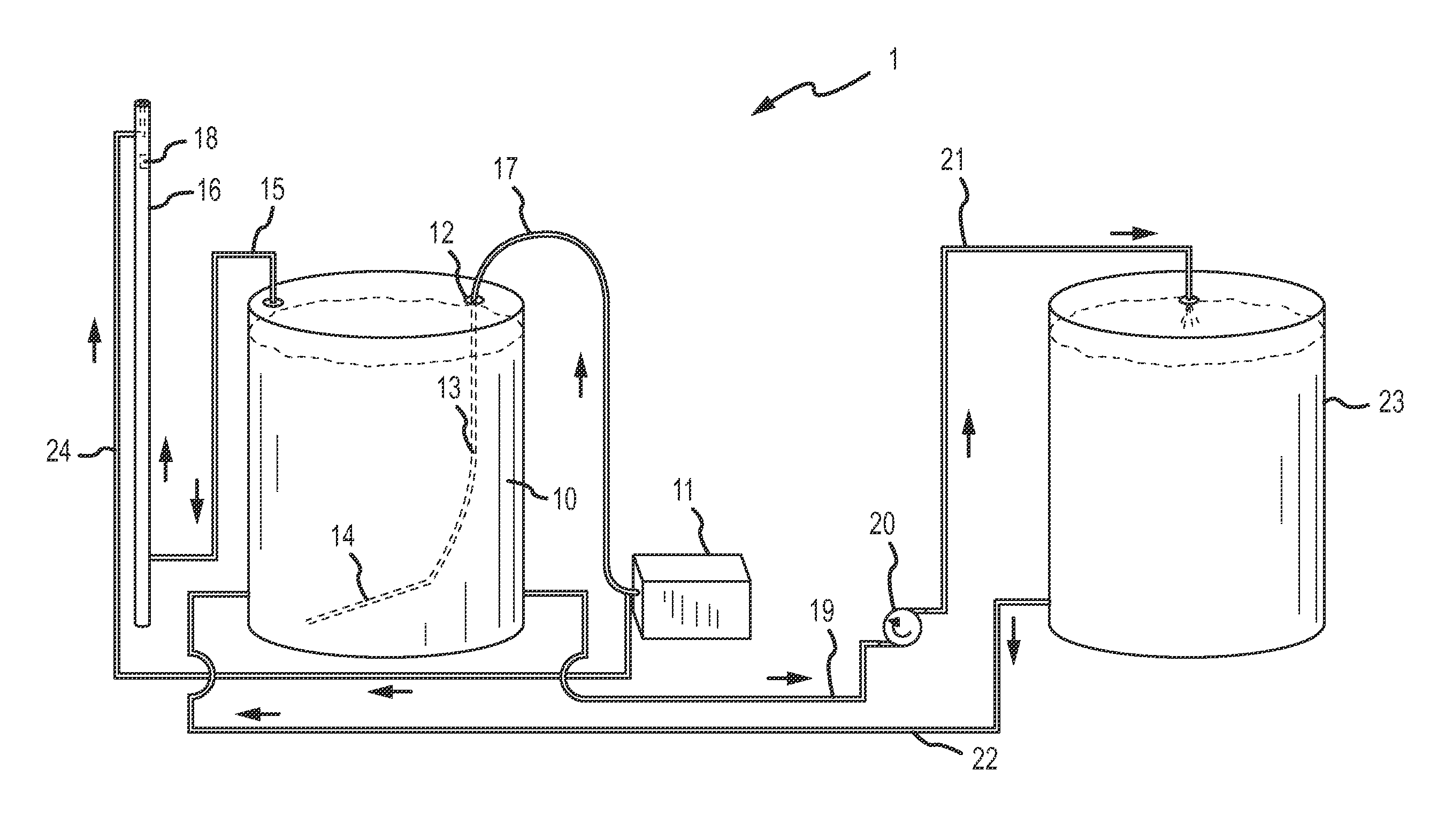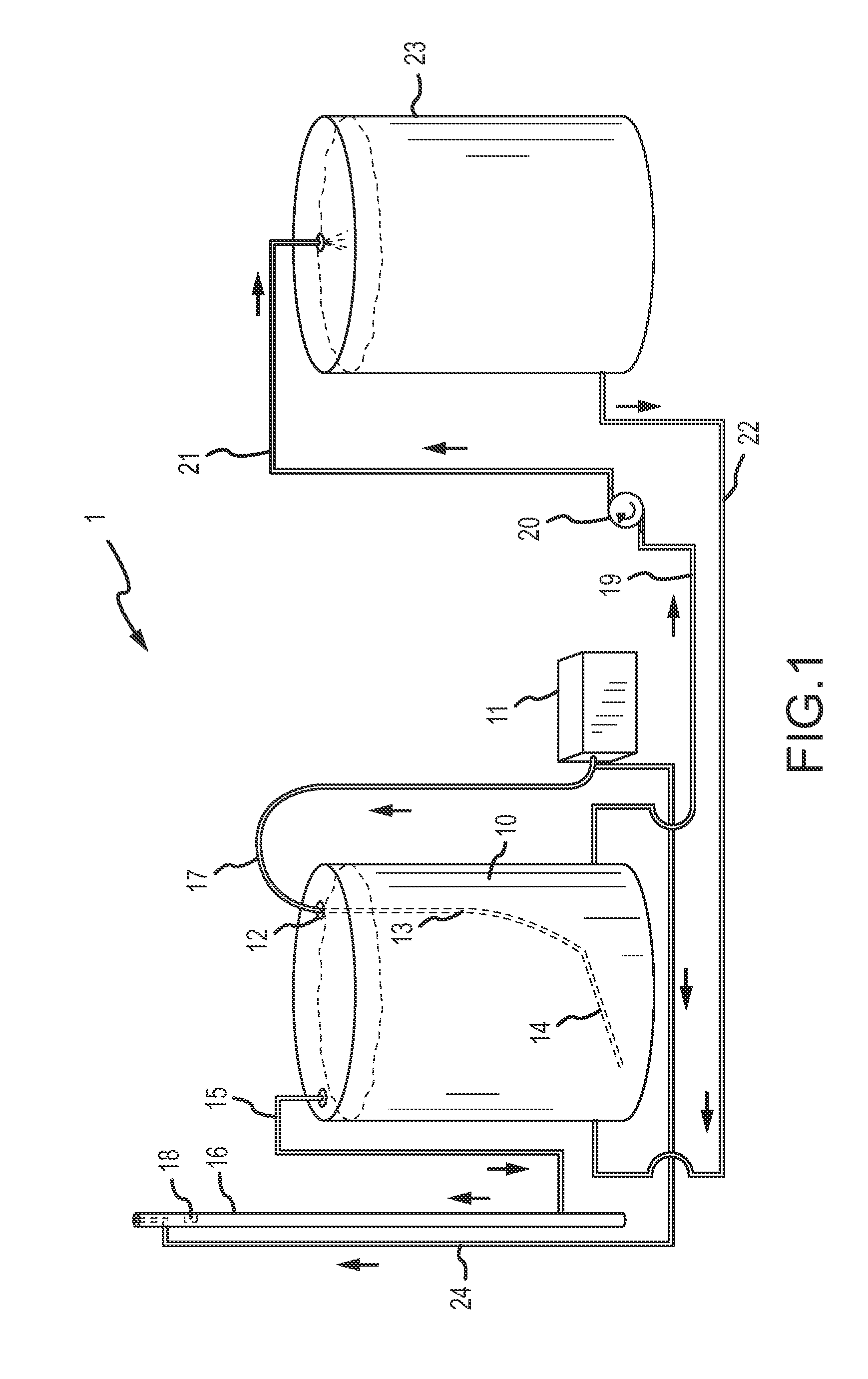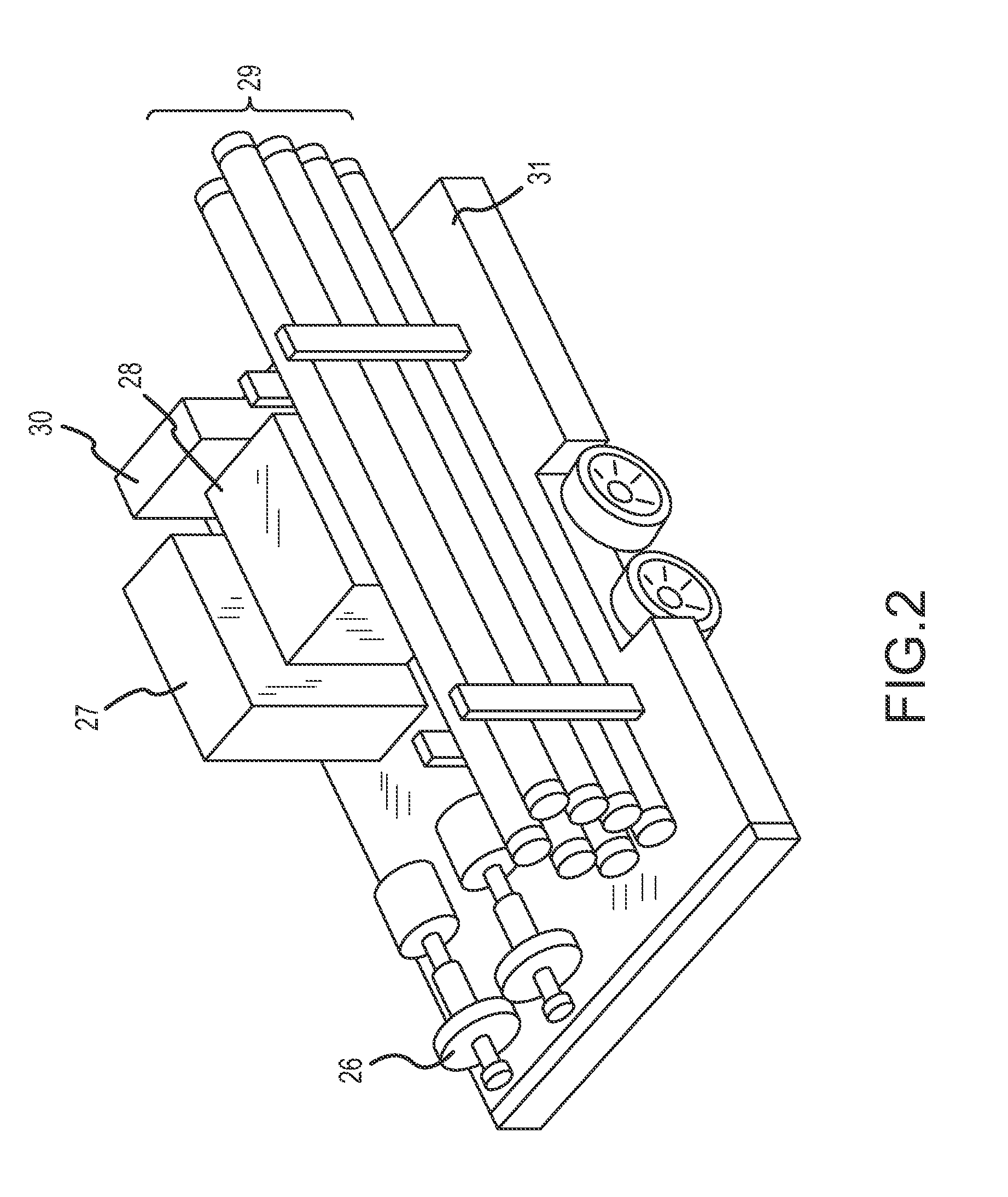Method and system for removing hydrogen sulfide from sour oil and sour water
a technology of sour oil and hydrogen sulfide, which is applied in the direction of liquid degasification, waste water treatment from quaries, and separation processes, etc. it can solve the problems of high hydrogen sulfide, so as to reduce sulfur-by-weight content, reduce the effect of sulfur content and high hydrogen sulfide conten
- Summary
- Abstract
- Description
- Claims
- Application Information
AI Technical Summary
Benefits of technology
Problems solved by technology
Method used
Image
Examples
example 1
[0134]To determine tons of sulfur emitted using one embodiment of the invention, a water tank was filled with approximately 350 barrels of sour water, the sour water having a concentration of 10,000 (1%) hydrogen sulfide, as tested through a bottle test described in Example 2, below. Air from an air compressor was distributed into the bottom of the tank at a steady rate of 105 scfm. The air from the vapor space in the tank was then transferred to a vent stack. The amount of hydrogen sulfide and sulfur in the vent stack was measured over a twelve hour period. The measurements were taken around every thirty minutes. The air in the vent stack measured 11.25 scf hydrogen sulfide and 1.01 of sulfur. The airflow into the water tank was kept at a steady 105 scfm and recorded the concentration over time in the vented air. This was approximately 350 barrels of 1% hydrogen sulfide (in tank vapor space tested via bottle test) water. Although air flow was regulated manually in this example, cer...
example 2
[0135]To determine the amount of hydrogen sulfide present in materials subjected to treatment through certain embodiments of the invention, a “bottle test” was conducted. The bottle test comprises filling a container with 50% of the liquid to be tested, drilling a hole in the top of the container, agitating the container for at least thirty seconds, and measuring the amount of hydrogen sulfide in the vapor space with a hydrogen sulfide meter. In this example, a 1000 ml container was used, but the size of the container is for illustrative purposes only. The 1000 ml container was filled with 500 ml of the liquid to be tested, whether oil or water. A small hole was drilled into the lid of the container. The hole at the top of the container was covered. The container was then agitated by shaking the container for at least 30 seconds. A longer agitation time did not affect the results. After agitation, the vapor space was measured for the amount of hydrogen sulfide. The hydrogen sulfide ...
example 3
[0137]Oil from Little Knife Field in North Dakota contained both hydrogen sulfide and sulfur. The pre-process hydrogen sulfide in the vapor space measured at 10.6% or 106,000 ppm. Using a sulfur-in-crude analyzer, the pre-process sulfur by weight measured at 0.66%. After treatment with the present invention, both hydrogen sulfide and sulfur by weight content was reduced, where hydrogen sulfide was reduced to 0% or less than 1 ppm and the process reduced the sulfur by weight to 0.55% by weight.
PUM
| Property | Measurement | Unit |
|---|---|---|
| temperature | aaaaa | aaaaa |
| mean diameter | aaaaa | aaaaa |
| mean diameter | aaaaa | aaaaa |
Abstract
Description
Claims
Application Information
 Login to View More
Login to View More - R&D
- Intellectual Property
- Life Sciences
- Materials
- Tech Scout
- Unparalleled Data Quality
- Higher Quality Content
- 60% Fewer Hallucinations
Browse by: Latest US Patents, China's latest patents, Technical Efficacy Thesaurus, Application Domain, Technology Topic, Popular Technical Reports.
© 2025 PatSnap. All rights reserved.Legal|Privacy policy|Modern Slavery Act Transparency Statement|Sitemap|About US| Contact US: help@patsnap.com



